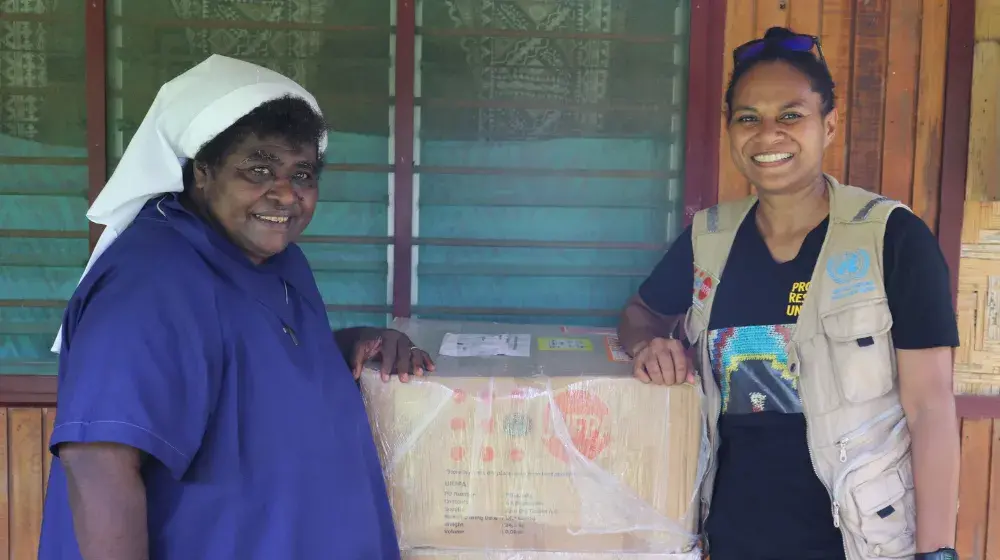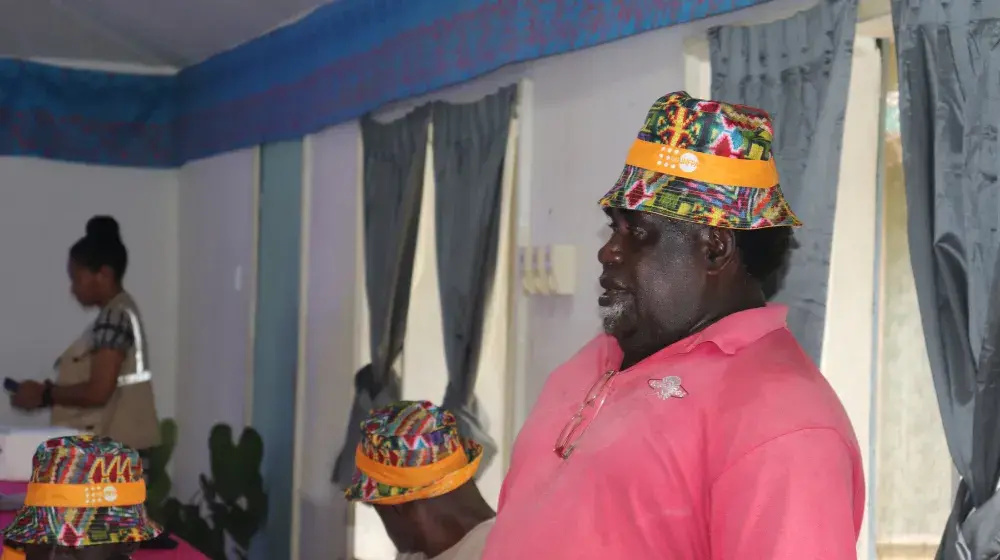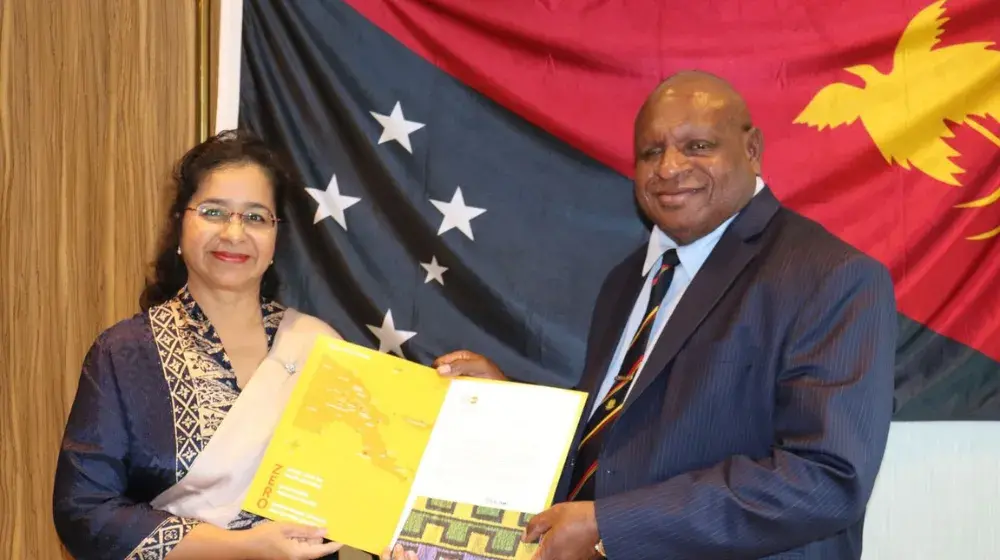‘‘With or without UNFPA, we are now confident that we will be able to sustain the gains from the project through the skills and the right mindset” says Lyn one of the community mobilizers in Tari.
On the early and cloudy hours of the 22nd of July of this year, several women and some men – wearing protective masks, some walking barefoot and others with local foot wear, started to slowly congregate at a local meeting place in Tari, Hela Province. The event that opened with a warm excitement was the first open review of a humanitarian response project supported by the Emergency Funds of the United Nations Population Fund (UNFPA) in Papua New Guinea.
The project has assisted women and young girls in Tari, Hela Province to have continuous access to sexual and reproductive health services and prevent gender based violence in the local communities from March to August of 2021. Displaced women and young girls, survivors of a protracted tribal violence, together are holding the open review with UNFPA and its implementing partners, the Family Health Association, the Catholic Diocese of Mendi, and the Family Support Center of Tari.
At the start of the after action review, the UNFPA Team, composed of Ms Rena Dona, Acting Deputy Representative and Ms. Keren Bun, Humanitarian Coordinator, emphasized that the after action review or AAR was meant to be a learning exercise. The AAR provided a safe platform for local stakeholders to share their insights on what worked during the project, what did not and more importantly, why. It also served as a mechanism to listen to and include recommendations on the way forward. The platform was a success as good practices and key challenges were shared and feasible solutions were proposed by the local stakeholders. The AAR informed community members that the project was about to end and the closure required that the community was adequately prepared for it. The presence of translators helped ensure that the voices of all participants, including the uneducated, were captured, during the review meeting.
Lyn, one of the proactive community mobilizers and a displaced single parent with four children, said the After Action Review was a learning experience for community mobilizers like her from Tari’’. She appreciated UNFPA’s strong support, through trainings including emergency, obstetric and newborn care, prevention of gender-based violence and minimum initial service package for sexual and reproductive health in emergency settings. Lyn shared that UNFPA’s assistance made them realize the importance of a change in the mindset to improve their lives ‘instead of staying helpless and hopeless.’ Lyn benefited from a recent EMONC training led by UNFPA’s International Sexual and Reproductive Health Specialist, Dr Titilola Duro-Aino, that assisted a mother from a far-flung area in Tari, to give birth to a healthy baby girl. Through UNFPA’s support, she said, she has gained confidence to regularly reach out to local government officials and ensure the sustainability of the women’s friendly spaces. She also said that she believed ‘the local leaders should be recognized for positive results in the community’.
Assessing the results of the humanitarian response project, Jocelyn, another community mobilizer from Tari, said they gained skills and learned how to generate seed money from livelihood activities, such as making of bilums (indigenous bags) and dresses, baking, cooking and backyard gardening. ‘‘With or without UNFPA, we are now confident that we will be able to sustain the gains from the project through the skills and the right mindset”, she said.
The majority of the women in the after action review, including Lyn and Jocelyn, identified UNFPA’s support to the establishment of the women’s friendly spaces (WFS) as a good practice from the project. The WFS provided a platform for women to share stories, participate in information, mental health and psychosocial counselling sessions and skills building. The participants said that the WFS attracted displaced women to join other women and young girls instead of other time wasting practices and being caught up in tribal fighting. Mobile outreach clinics, dignity kits and personal protective equipment with the COVID-19 pandemic were also highly welcomed by women and young girls at the project site.
At the end of the AAR, the consensus reached was that there was a need for a more integrated approach for UNFPA’s assistance, within UNFPA and with other UN agencies and development partners in a particular geographic area –whether it is about development, humanitarian or peace-building. One of the examples provided was to link the gains from this humanitarian response project that is about to end with that of the ongoing UNFPA project in Tari currently being implemented up to the end of this year by the Catholic Diocese of Mendi. Supported by the Peacebuilding Fund, the said project will train groups of local men and young boys to be strong advocates/champions of lasting peace – an aspiration that the people of the province of Hela and PNG as a whole long for.
By Rena Dona, Acting Representative of UNFPA in Papua New Guinea.





